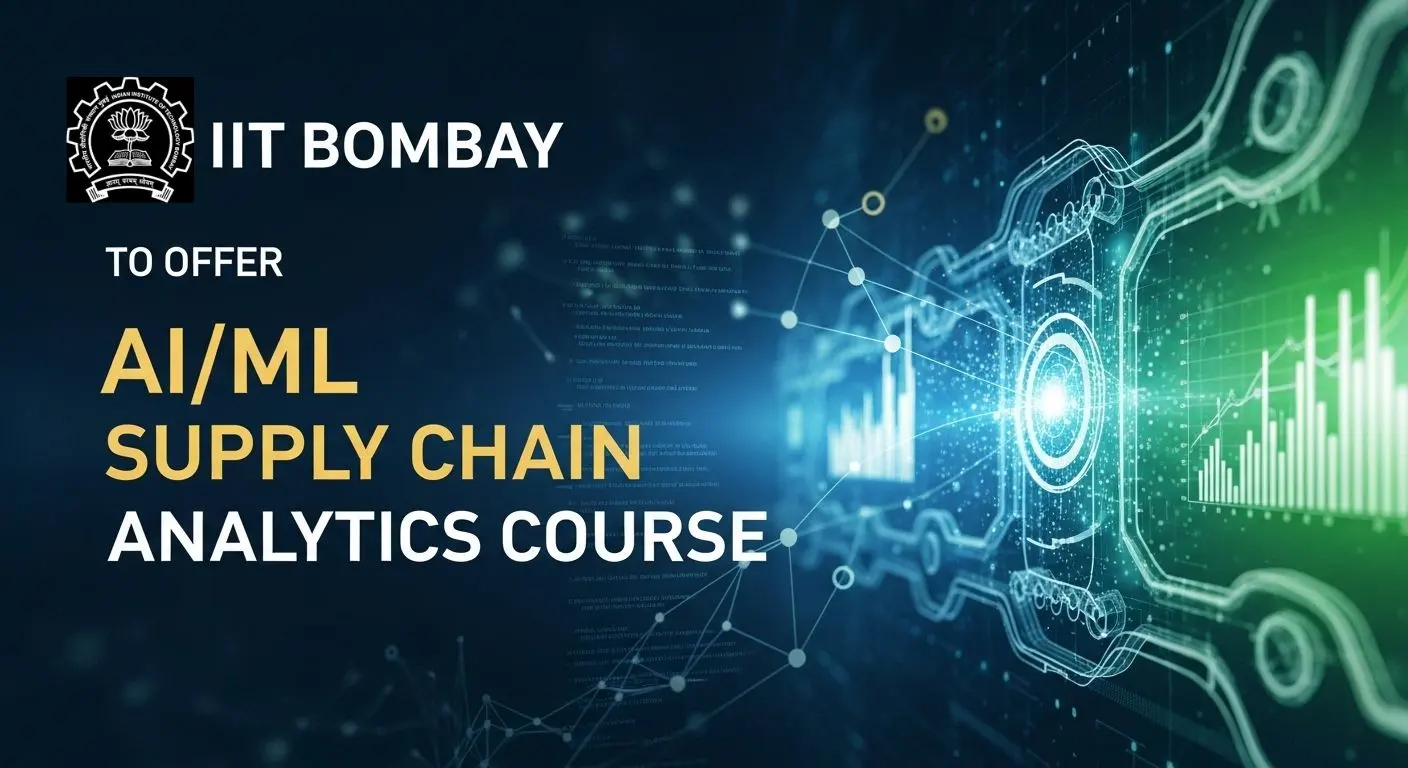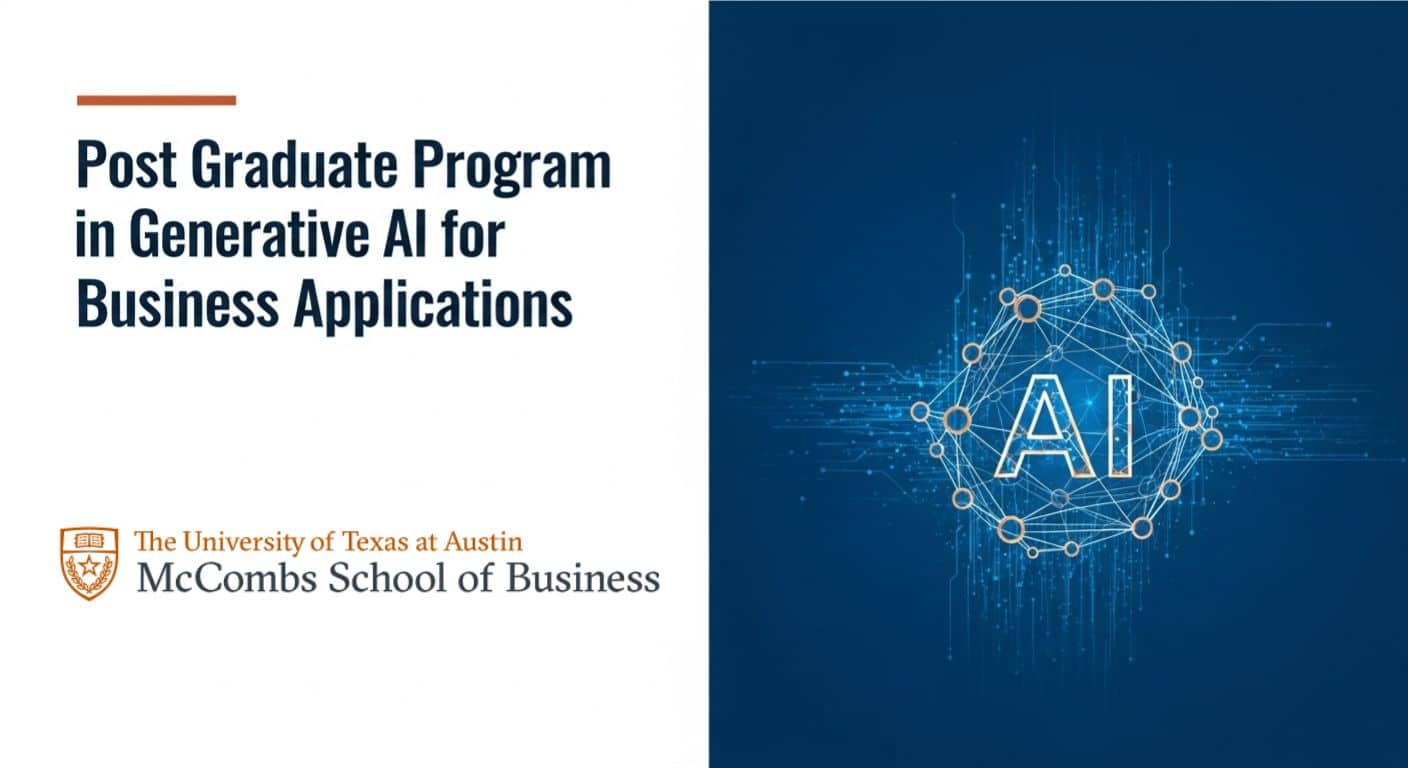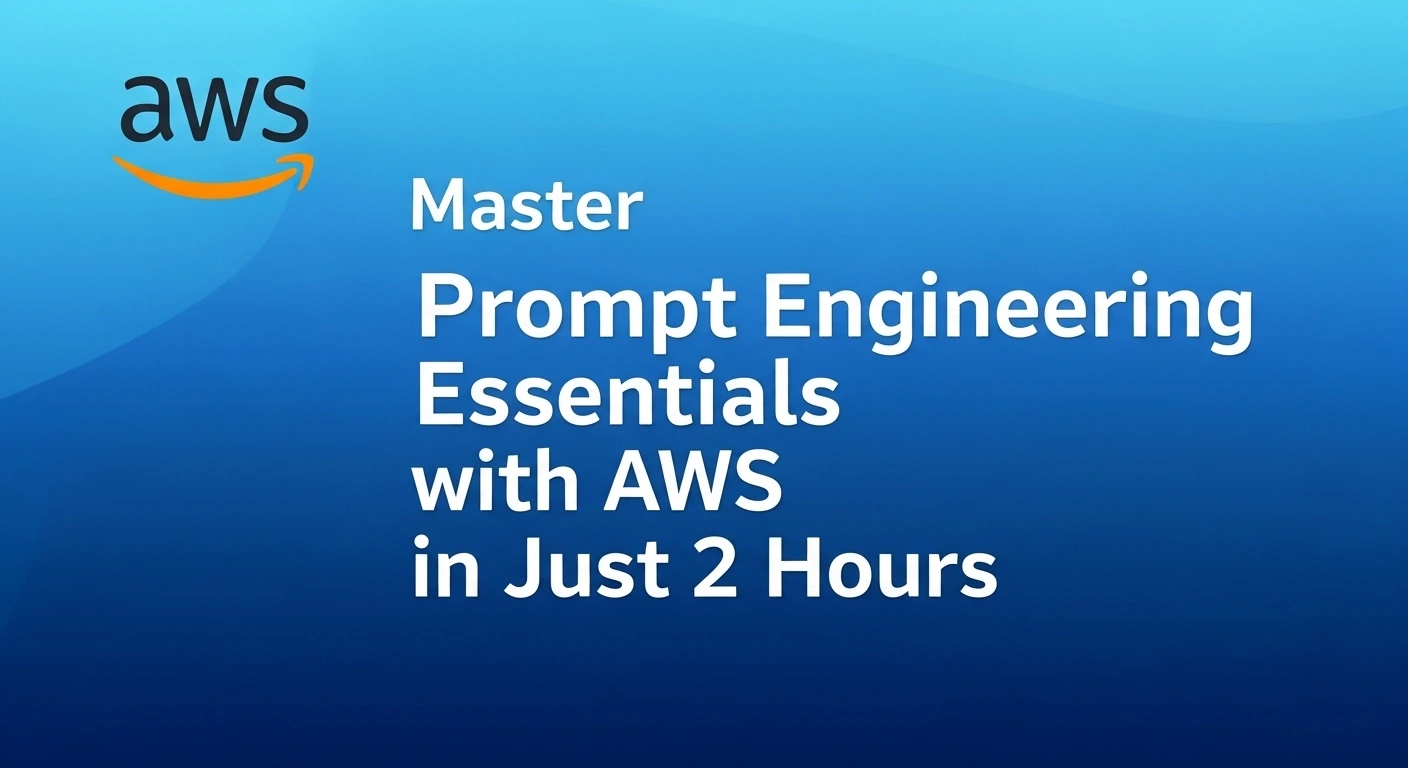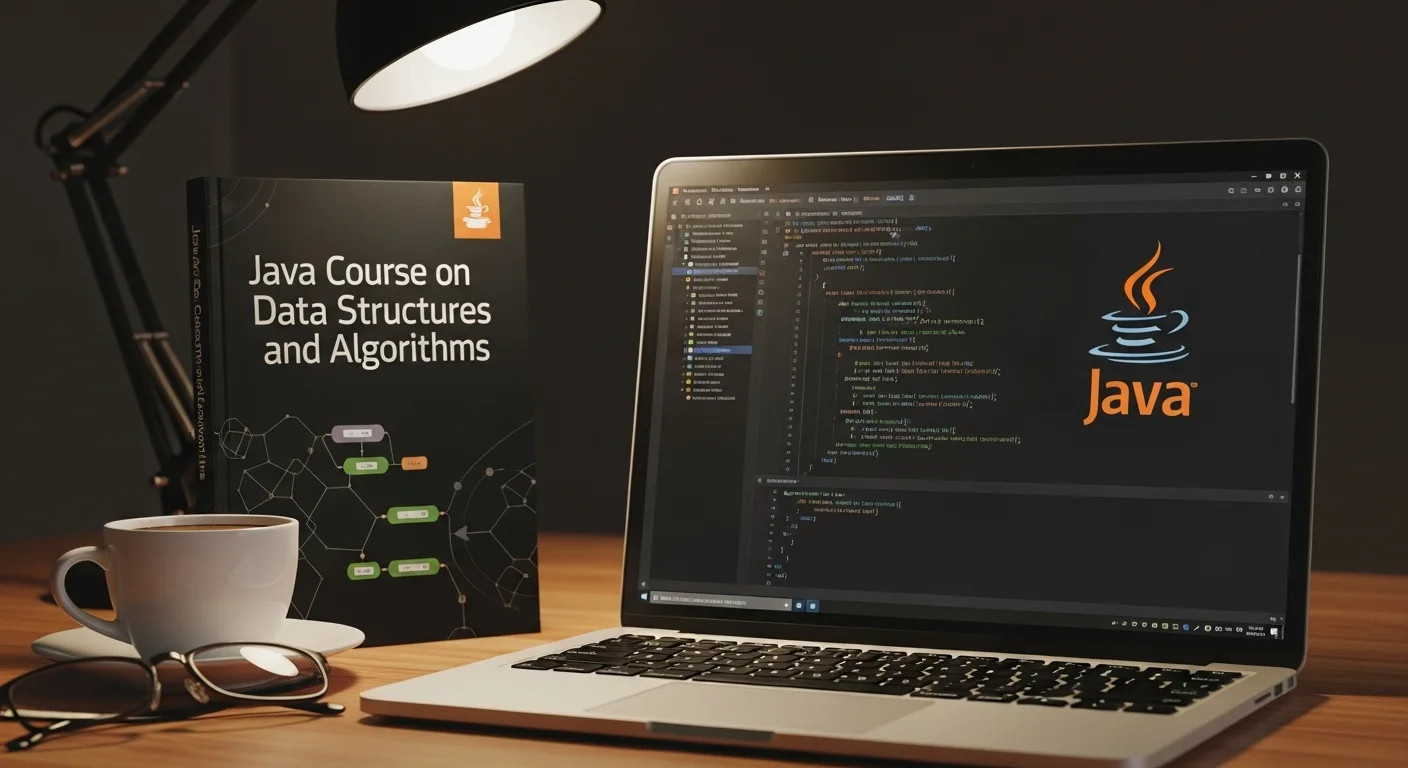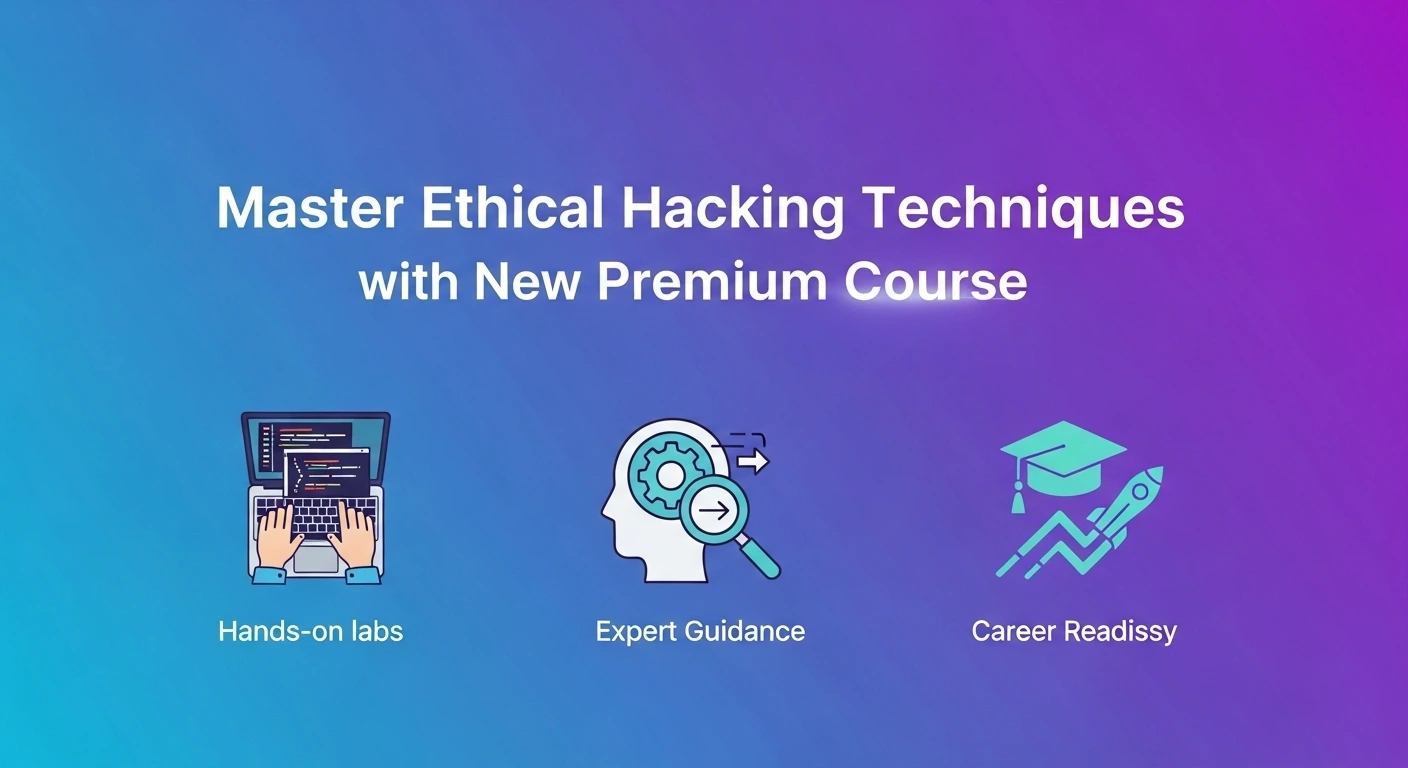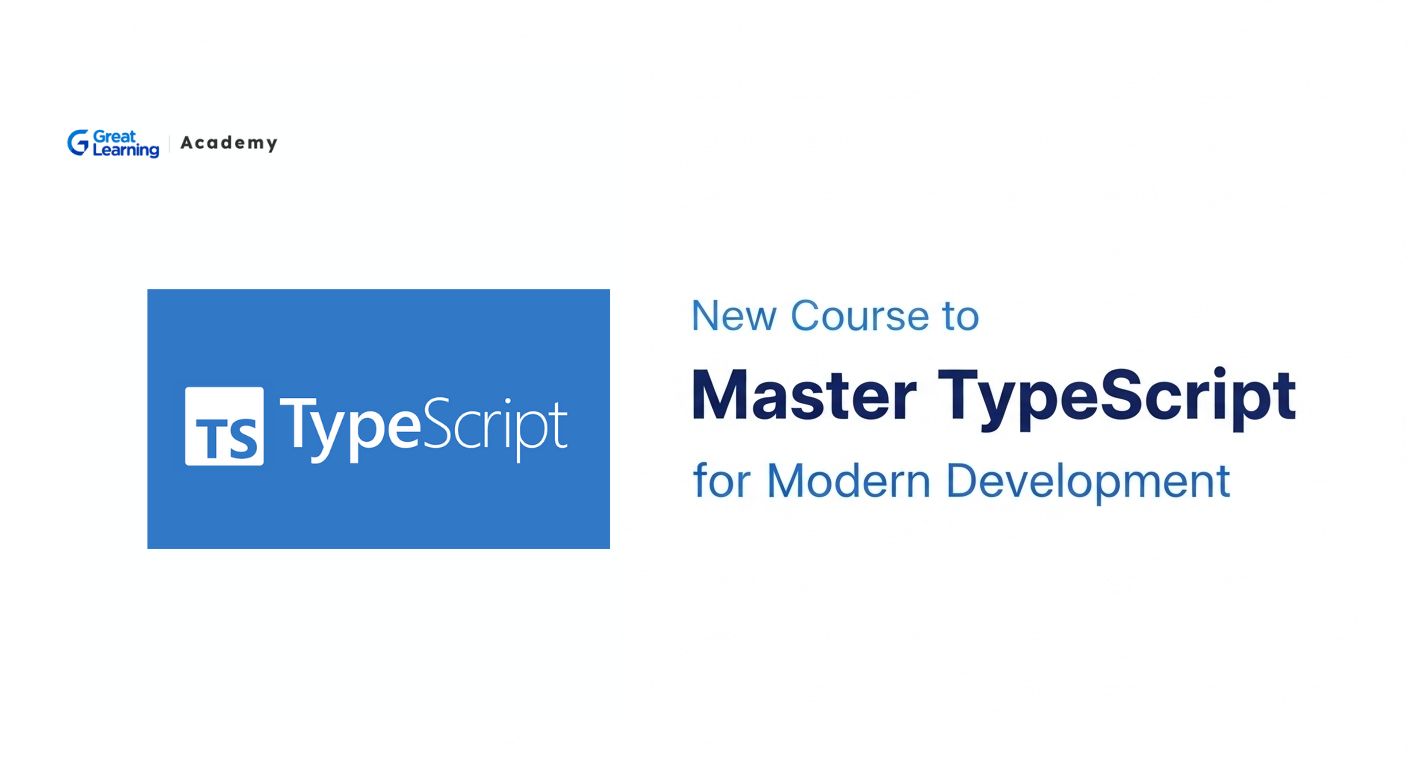About the AI/ML Supply Chain Analytics
The Certificate in Supply Chain Analytics Using AI and ML Applications by IIT Bombay is a six-month online program. It presents optimization, simulation, statistical modelling, and AI techniques using case studies in inventory models, network design, and demand forecasting. It is offered in the form of interactive sessions, provides a certificate from the IIT Bombay, and equips the professionals to lead change through AI in supply chain and operations.
Certificate in Supply Chain Analytics with AI and ML Applications
A 6-month hands-on curriculum designed to equip professionals with supply chain analytics using AI and ML applications, offered by IIT Bombay.
Key Highlights
- Top IIT Bombay Faculty
Study under the expert faculty of IIT Bombay, which combines academic knowledge with industry relevance.
- AI and ML Integration
Modules introduce up-to-date AI and ML to support supply chain optimization and decision-making.
- Interactive Live Sessions
Faculty interaction, resolution of doubts, and group discussions are available in real-time and enhance the learning experience.
- Flexible Online Study
Designed for working professionals, balancing academics with career commitments.
- Case-Based Learning
Receive practical experience via real-life case studies, simulations, and group discussions.
- Personalized Support
The course has a Program Manager who provides academic and administrative support throughout the course.
Course Duration and Format
- Total Duration: 6 months
- Mode: Online
- Format: Five cohesive modules with weekly live, interactive sessions
- Learning Style: Case-based teaching methodology, hands-on projects, peer-to-peer learning, personalised guidance from a Programme Manager
- Certificate: Certificate of Completion from IIT Bombay
Who Should Enroll?
This program is ideal for:
- Inventory and logistics Supply Chain and Operations Professionals who intend to implement AI-based strategies.
- Data & BI Professionals who implement analytics & ML in procurement, operations, or supply chain.
- Consultants & Strategists integrating analytics and AI into client solutions.
- Professionals who work in manufacturing, retail, and E-commerce, and who might consider up-skilling in analytics, artificial intelligence, and the design of robust supply chains.
Course Curriculum (Detailed Modules Overview)
Module 1: Introduction to Data-Driven Supply Chain Analytics
- Role of AI & analytics in supply chain decisions
- Descriptive, diagnostic, predictive & prescriptive analytics
- Data sources & quality relevance
- Python basics & GenAI for scenario planning
Module 2: Supply Chain Network Design & Optimisation
- ROP supplier selection (WSM, AHP, DEA)
- Deterministic & stochastic location-allocation models
- Mixed-integer programming in Python
- Cost, service level & resilience trade-offs
Module 3: Data-Driven Inventory Models
- Dynamic EOQ formulas & Newsvendor models
- Stochastic control policies across periods
- Python-based reorder point & safety stock models
- ANN-based inventory optimisation
Module 4: Demand Forecasting & Planning
- Classical time-series (ARIMA, ETS) & ML methods (Decision Trees, SVM, Neural Nets)
- Error metrics & use of leading indicators
- GenAI-driven demand simulators
Module 5: Transportation & Risk Analysis
- Dynamic vehicle-routing & multimodal analytics
- Risk modeling for disruptions & volatility
- Learning-guided routing optimisation models
- Scenario-based contingency planning with GenAI
Key Learning Outcomes
- Learn to Generate Accurate Demand Plans: Use time-series, ML, and GenAI simulators to support flexible, reliable forecasts.
- Master Inventory & Replenishment Policies: Optimally determine reorder points and safety stock using EOQ, Newsvendor, and ANN-based methods.
- Understand how to Build Resilient Networks: Design dealer portfolios and structures that strike the efficiency-disruption balance.
- Explore Ways to Optimise Transport & Mitigate Risks: Solve routing optimisation problems, schedule multimodal deliveries, and use analytics & GenAI to respond to any form of disruption.
- Gain the Ability to Make End-to-End Data-Driven Decisions: Utilize AI/ML in demand, inventory, networks, and logistics to manage the supply chain as a whole.
Free Courses to Strengthen Your Fundamentals
Learn about the basics of supply chains, how to optimise the processes, technological application and use, top management of a risk, and efficiency of these processes, answered with a real-life example.
Understand how to analyze the data and forecast customer demand with practical examples to follow and a comprehensive explanation of each module.
Learn the basics of logistics, network structure, transportation, warehousing, and strategy to maximise operations and reduce expenditures.
Conclusion
The Certificate in Supply Chain Analytics with AI and ML Applications is a unique specialisation that prepares professionals to improve their knowledge in making data-based decisions in the supply chain. The program enhances a balance between conceptual learning, practical solutions, and AI/ML implementation to provide the learners with a chance to develop robust, effective supply chains that are future-making.
FAQs
What industries benefit most from this program?
The competencies can easily be applied to uplift many industries such as manufacturing, retail, e-commerce, logistics, and consulting, among others, since they have a high measure of relevance in data-driven and AI-enabled supply chain management, which is being deployed to mint competitive advantages.
How is this different from other Supply chain courses?
It incorporates practical application of AI, ML, and GenAI in all the modules so that participants can become aware of the latest practices alongside traditional models of supply chain.
How does the program address supply chain risks?
Learn to model disruptions, commodity price fluctuations, and geopolitical risks using GenAI and modules on transportation and risk analysis to manage the complexity of the supply chain.
